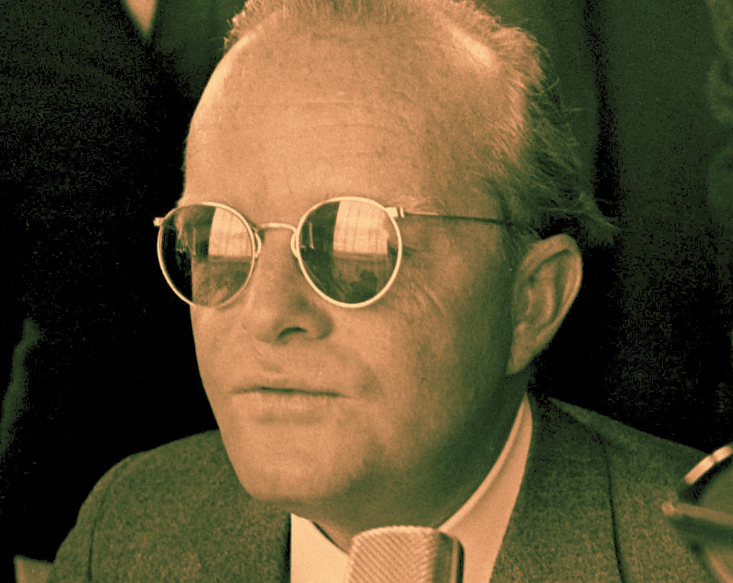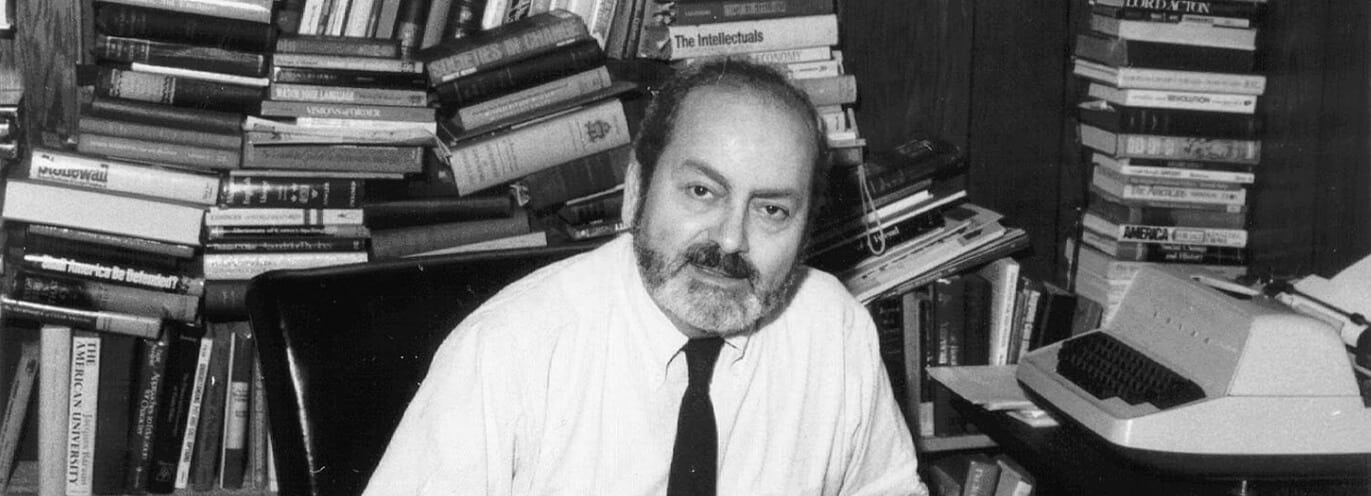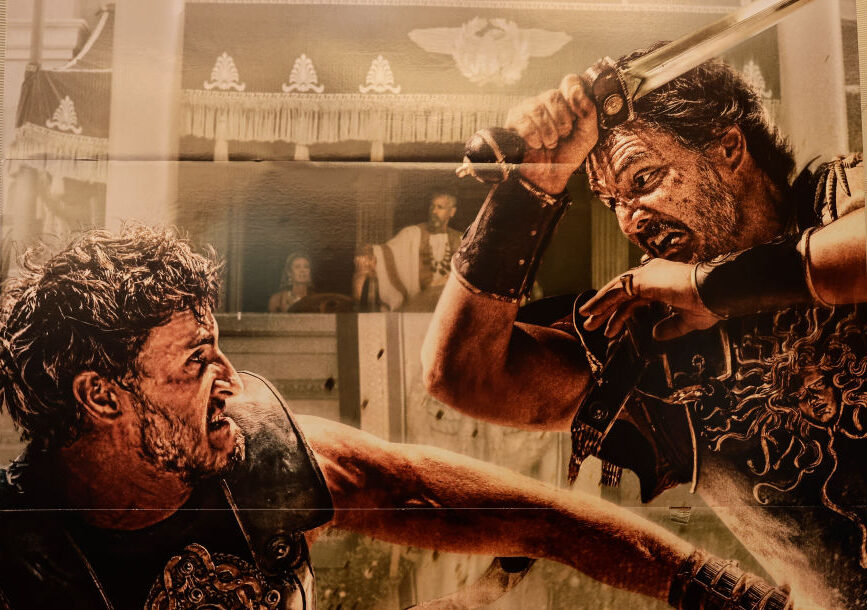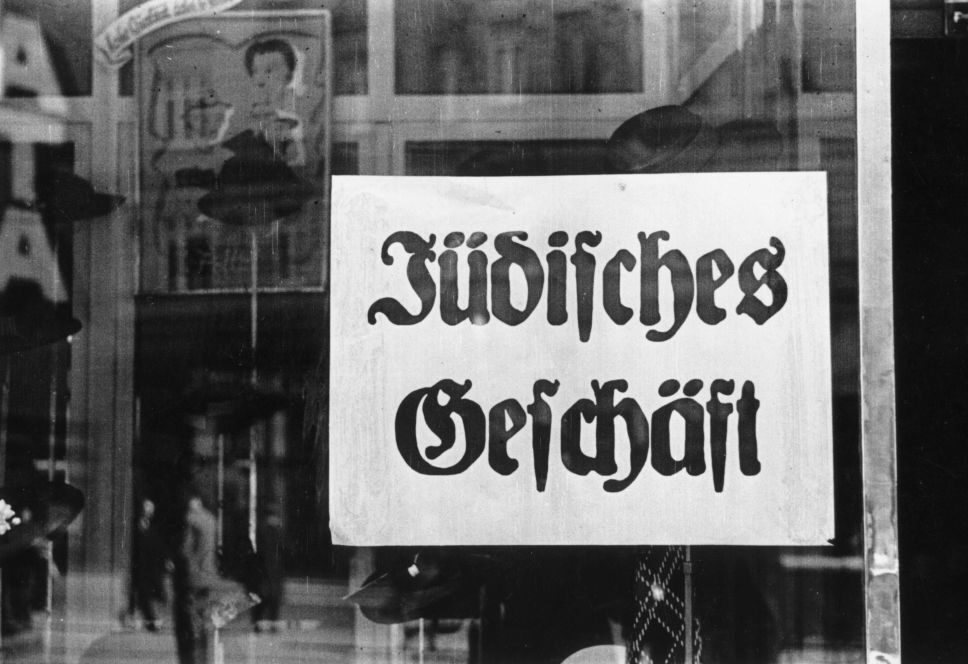The literary output of the author, screenwriter, essayist, occasional actor, and purveyor of often waspishly malicious gossip Truman Capote (1924–84) was prodigious. He produced a collection of five full-length novels, eight novellas—among them 1958’s Breakfast at Tiffany’s—scores of commentaries, stories, articles, and a series of nonfiction books, including 1965’s In Cold Blood, which has spawned three successive film adaptations and a TV miniseries. But his greatest work was, perhaps, his life itself—an American epic that sprawled beyond literature to encompass Hollywood, Broadway, the fragrant backstreets of Tangier, various European watering holes, a virtual season ticket to the late-night talk show circuit, and a merry-go-round of drug and alcohol addiction, from which he periodically alighted for a stay at a rehab facility. In what can only be deemed a lapse of judgment, late in life Capote saw fit to publicly dish the dirt on “the swans,” a coterie of elite New York socialites, with a thinly veiled fictionalization of their lives in Esquire, leading, apparently much to his surprise, to his banishment from their company and ultimate fall from grace.
Capote was an unlikely high-society heartbreaker. Born on September 30, 1924, in New Orleans, he grew up in the small Alabama town of Monroeville, where, by his own account, he spent hours during his lonely childhood writing obsessively in longhand, until he got a typewriter at the age of eight. Barely ten years later, following a brief stint working at the New Yorker, he published a story titled “Miriam” in Mademoiselle magazine, which won an O. Henry Award in 1946 and led to offers from multiple publishing houses.
Today, forty years after his death at the age of just fifty-nine, the critical consensus on Capote is that he was a radiant youthful talent who later developed a tragic addiction to cocaine and vodka, and to the attention of café-society ladies, while bloating in his kitschy Manhattan penthouse apartment like Elvis Presley at Graceland. It’s a caricature, if one with a grain of truth. Some of Capote’s early stories, written when he was barely out of school, still dazzle in their precocity, craftsmanship, clarity, and, above all, their Hemingway-esque ability to leave powerful things unsaid just below the surface. By and large, Capote’s stories deal with the lives of the lonely, broken, and marginalized in society, and it could fairly be said that their author, having grown up gay in the South of the 1930s, knew whereof he spoke. Capote’s debut novel, Other Voices, Other Rooms, written when he was twenty-three, bears comparison in some of its broad detail to The Catcher in the Rye as a coming-of-age fable; both books are, in their way, a definitive work on what it was like to be a teenager in those rackety immediate postwar years. Each one speaks in the unforgettably haunting voice of the adolescent at odds with an uncaring world.
I admit I can take or leave Capote’s celebrated true-crime saga In Cold Blood. It’s an obviously arresting tale in itself—the slaughter of four innocent members of the Clutter family in their desolate Kansas farmhouse—but set against that the author’s implied sympathy for the two murderers, and the note of voyeurism throughout, it always leaves me feeling queasy. For better or worse, the book cemented Capote’s reputation for the ages. Sometimes considered the original nonfiction novel, it became an international bestseller. It also took a heavy toll on its author. Following the execution of the Clutter family’s killers, Capote remarked that he regretted the emotional cost of the half-decade he had devoted to the book. He told the author George Plimpton that if he had known what was waiting for him in Kansas, he would have “driven straight on, like a bat out of hell.” For whatever reason, he never wrote anything of real substance again.
This brings me to the events of early spring 1983, when, shortly out of college, I was living a somewhat makeshift existence in a basement room on the Upper West Side of Manhattan, trying—and failing—to become a great Anglo-American novelist, or for that matter a novelist at all. A local friend had worked on and off with John Cheever of The Wapshot Chronicle fame, who had died about a year earlier at the age of seventy. Now he, the friend, was organizing an informal gathering to celebrate Cheever’s life at a bar across town called the Guardsman, where Cheever had often come to loiter of an evening. I went along.
The Guardsman (now defunct) was one of those dimly lit, oak-paneled rooms with framed caricatures of its famous habitués on the walls and a perhaps overdone but not wholly unsuccessful aspiration to the general look and feel of a London gentlemen’s club. Everyone there—journalists mainly—was clever, voluble, and (those were the days) beautifully dressed. Our host, for example, wore a red silk shirt and a Tom Wolfe–like luminous white suit, in which he darted hither and thither like a large tropical fish. (Wolfe himself, though living nearby on East Seventy-Ninth Street, wasn’t present.) There were caviar and bite-sized canapés to eat and plenty of champagne chilling in the stainless-steel fridge behind the bar. The conversation was bright, catty, and ill-informed. I remember that one prominent Manhattan political correspondent assured me that “that **** Thatcher” would lose the forthcoming British general election, and I advised him not to bet on it. When the day came, the Conservative Party won its biggest parliamentary majority since the Second World War.
It wasn’t all vacuous backslapping among hacks out for the night, however, because seated on a high stool at a table in a corner of the room, his tiny legs dangling down far short of the floor, was a middle-aged man in rumpled grey trousers and what looked suspiciously like a crested school blue blazer, with five or six young people standing attentively around him.
“Truman,” my friend hissed in my ear, as if I might not recognize him instantly. It turned out that Capote had been both a friend and an admirer of Cheever’s, which was no small accolade. Capote was a man who had said of the author and activist James Baldwin (whatever contrary impression one may have gathered of their relationship from watching FX’s recent anthology series Feud): “I loathe his fiction; it’s crudely written and of a balls-aching boredom,” which was harsh, certainly, but almost counted as a rave review compared to his opinion of Gore Vidal. “I’m always sad about Gore,” Capote once quipped. “Very sad that he has to breathe every day.”
Fortifying myself with another drink, I moved closer to the center of the action. It was Capote, all right. Diminutive, sallow-faced, such hair as remained a sort of Kansas cornfield blond-and-gray stubble, pink-framed sunglasses, the trademark singsong voice. Everyone was laughing loudly about something he’d just said, the way people do when somebody with a reputation as a wit does so much as to ask the time. He smelled a bit musty, but with a patchy application of dynamite-strength cologne. One woman aged about nineteen was standing at the back of the circle, eating a cracker laden with caviar. “What did he just say?” I asked her quietly as I came up to join the group. She tried to tell me, but her mouth was too full of caviar to reply coherently.
I had just one direct exchange with Capote. After a while he asked me my name and occupation, and when I mumbled the word “writer,” he said “Oh?” and enquired what I was working on. Since he’d asked, I launched into my still-unrealized plan to publish a novel, or, failing that, to write the biography of Charlie Chaplin, and proceeded to give a semi-coherent account of my plans for the project. My voice trailed off, hopefully just in time, as I realized that I might have been telling Mozart about this little piece I was tinkling about with at home on the piano. I have to say that his face, so far as it was visible behind the shades, registered nothing but good-natured interest.
After I’d dried up, Capote gave a high, ringing laugh, which sounded something like a pile of change being tossed onto a countertop, his eyes then seeming to dart around the room to make sure everyone was listening, and began a long and magnificently indiscreet story about “my friend Charlie” and his widow, Oona, that concluded with an account of how a few years earlier a pair of feckless central European auto mechanics turned grave robbers had removed Chaplin’s body from its resting place in a Swiss cemetery in a failed bid to extort money from his family for its return. Taken as a whole, Capote was loquacious, unapologetically rude about certain parties, alive and dead, and still very funny. No doubt his Chaplin monologue might have been construed as inappropriate, or offensive, had one of today’s culture police overheard it. But everyone around him was guffawing. I thought him to be in sparkling form, and apparently content to sip a single glass of what may have been water, although I noticed the merest hint of a reel when, a few minutes later, he stood up, bowed to us elaborately, and made for the door. After he left, it felt as if about twelve people were suddenly missing from the room.
Although Capote appeared commendably restrained in the Bacchic rites that night at the Guardsman, I wasn’t completely amazed when I read a couple of months later that he had been found guilty on a DUI charge—appearing in court, to the judge’s displeasure, in a pair of shorts and a sports jacket—nor, sadly, when it was announced in August 1984 that he had died as a result of “liver disease complicated by phlebitis, and multiple drug intoxication,” to quote the coroner’s report. His old sparring partner Gore Vidal, unable to restrain his glee at the news, called his death “a wise career move.” Sometime later, I found myself thinking back on the strange tale of Charlie Chaplin’s exhumation when it was reported that the urn containing a portion of Capote’s own ashes had been stolen from the home of his friend Joanne Carson, and then on Carson’s own death put up on public auction, where it was sold for $44,000 to an anonymous bidder. Perhaps the Southern gothic writer in him would have been amused by the notion of complete strangers competing to own his mortal remains. Or perhaps not. Somehow I could see Capote making it the denouement of one of those wonderful early stories with their lapidary prose and fascination with what happens once someone moves the guardrails defining the limits of what constitutes acceptable moral behavior.
Intelligent, opinionated, scathingly funny, arch, camp, surprisingly kind, and in my limited experience raucously good company, Capote’s career might be broadly divided into a first half in which he was positively touched by genius, almost spoilt by fortune, and a second in which he increasingly became not so much a creative artist as a character, a carefully constructed image that seemed to be more mask than man. On September 30, I shall raise a glass of something suitable and reread the final pages of Other Voices, Other Rooms in his honor.














